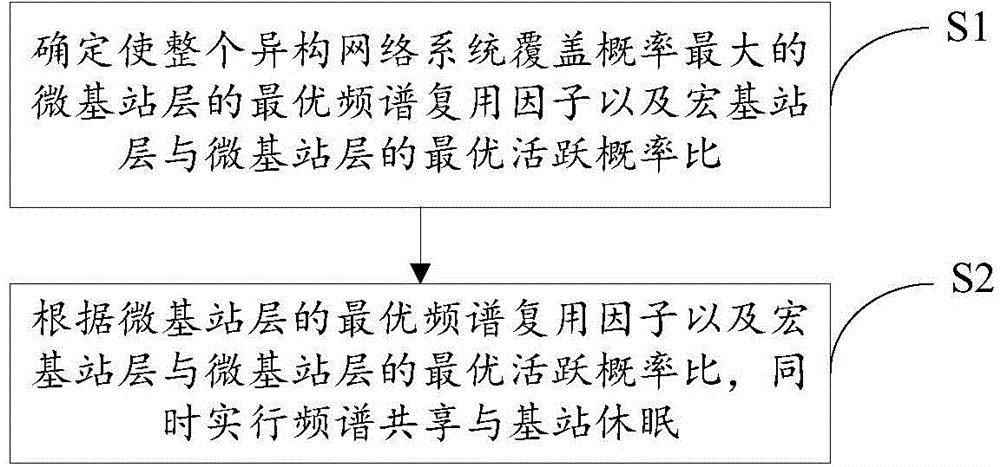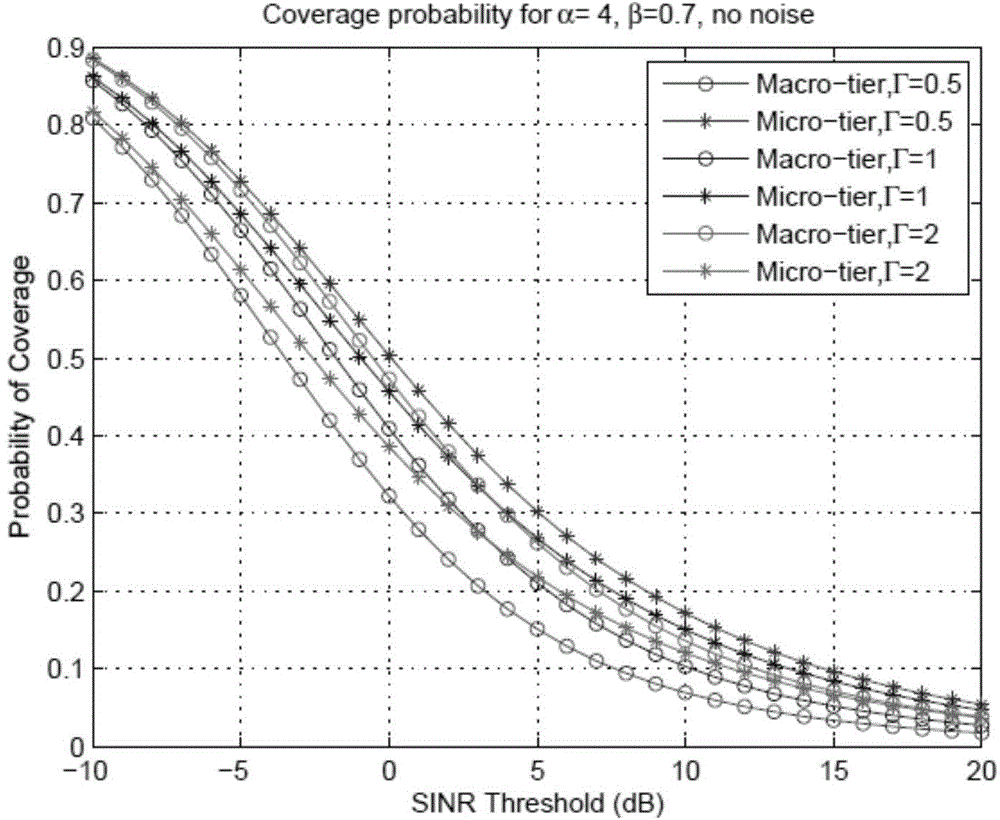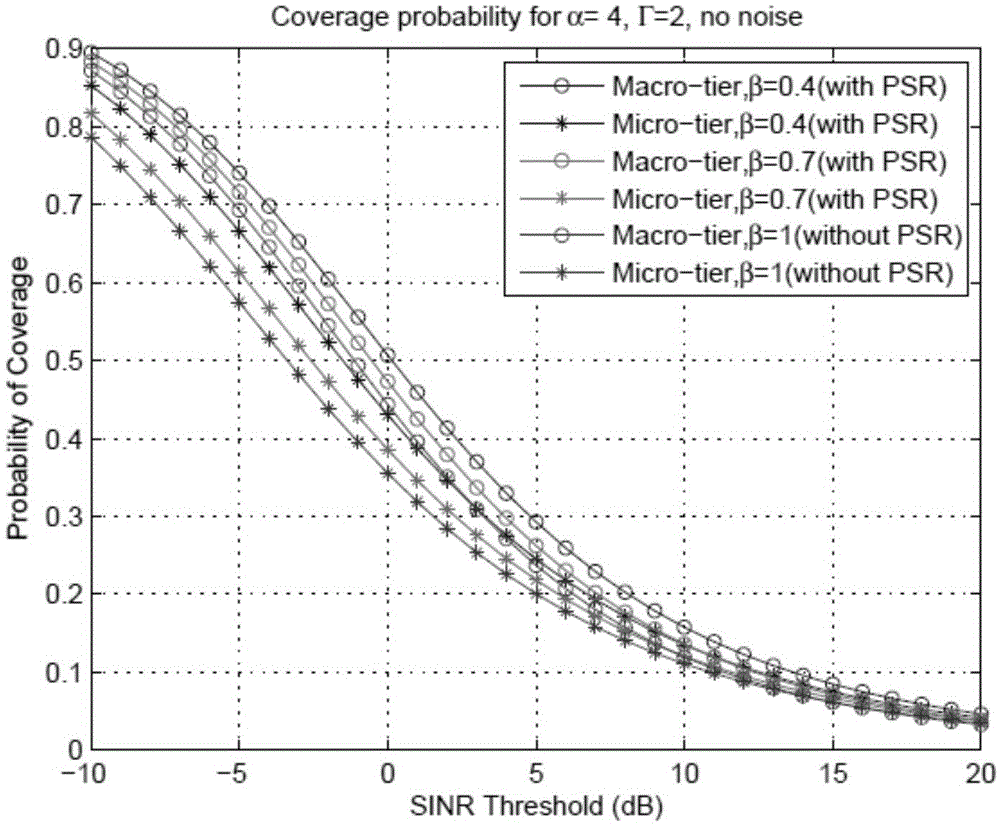Energy-efficient spectrum reuse and base station sleep combined method
A spectrum sharing and base station technology, applied in the field of communications, to minimize system energy consumption and improve energy efficiency
- Summary
- Abstract
- Description
- Claims
- Application Information
AI Technical Summary
Problems solved by technology
Method used
Image
Examples
Embodiment Construction
[0032] Before describing the technical solution provided by the present invention, some necessary parameters of the downlink system model of the heterogeneous network involved in the solution are defined and described here.
[0033] In the present invention, we consider a two-layer heterogeneous network including a layer of macro base stations with high transmission power (ie, macro cell layer) and a layer of micro base stations with low transmission power (ie, micro cell layer). The base station distribution of each layer obeys the uniform Poisson Point Process (PPP), and the coefficients are λ M and lambda m .
[0034] In the two-layer heterogeneous wireless network involved in the present invention, the channel is a Rayleigh fading channel, the transmission power of the base station is constant, and the transmission power of the macro base station is set as The transmit power of the micro base station is equal to that of the macro base station. which is Therefore, th...
PUM
 Login to View More
Login to View More Abstract
Description
Claims
Application Information
 Login to View More
Login to View More - R&D
- Intellectual Property
- Life Sciences
- Materials
- Tech Scout
- Unparalleled Data Quality
- Higher Quality Content
- 60% Fewer Hallucinations
Browse by: Latest US Patents, China's latest patents, Technical Efficacy Thesaurus, Application Domain, Technology Topic, Popular Technical Reports.
© 2025 PatSnap. All rights reserved.Legal|Privacy policy|Modern Slavery Act Transparency Statement|Sitemap|About US| Contact US: help@patsnap.com



